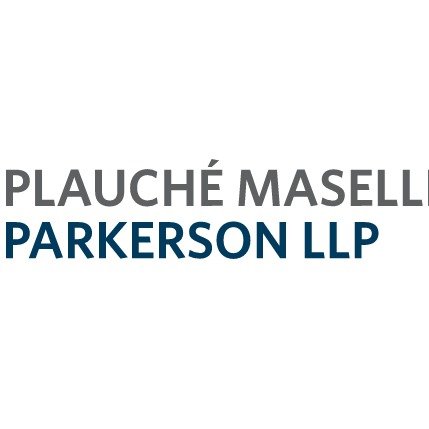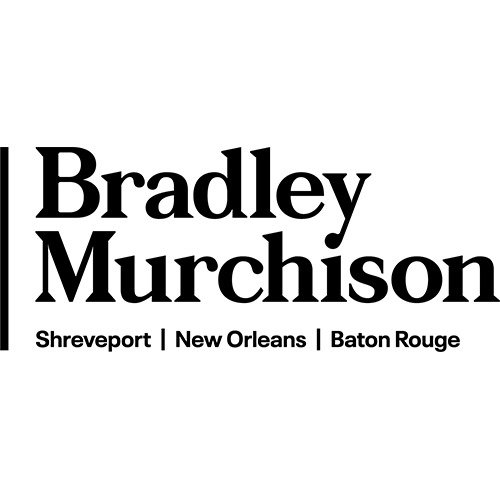Best Commercial Real Estate Lawyers in New Orleans
Share your needs with us, get contacted by law firms.
Free. Takes 2 min.
Free Guide to Hiring a Real Estate Lawyer
List of the best lawyers in New Orleans, United States
About Commercial Real Estate Law in New Orleans, United States
Commercial real estate law in New Orleans covers legal aspects related to the buying, selling, and leasing of properties designated for business purposes. The city, known for its vibrant culture and historical architecture, presents unique challenges and opportunities in the commercial real estate sector. With a diverse range of properties such as office buildings, retail spaces, warehouses, and industrial properties, commercial real estate law involves negotiating leases, managing property transactions, handling zoning issues, and ensuring compliance with local and federal regulations. Understanding the local market dynamics and legal environment is crucial for anyone entering this sector in New Orleans.
Why You May Need a Lawyer
There are several situations in which individuals or businesses may require legal assistance in commercial real estate in New Orleans:
Contract Negotiations: Drafting and negotiating leases, purchase agreements, and other contracts require legal expertise to ensure that all terms are favorable and enforceable.
Zoning and Land Use: Navigating local zoning laws and obtaining necessary permits for property development or changes in use can be complex.
Dispute Resolution: Disagreements between landlords and tenants, buyers and sellers, or between neighbors regarding property lines often require legal intervention.
Environmental Compliance: Ensuring that a property complies with environmental regulations, particularly in redevelopment projects, may necessitate legal advice.
Financing and Investment: Legal guidance is vital in structuring deals, securing financing, and managing real estate investments while minimizing risk.
Local Laws Overview
New Orleans has specific regulations and ordinances that affect commercial real estate transactions. Key aspects include:
Zoning Regulations: The local zoning laws dictate what types of businesses can operate in specific areas. These laws are crucial for determining the feasibility of property use.
Historic Preservation: Many parts of New Orleans are historically designated areas, requiring special permissions for modifications to existing structures.
Permits and Licensing: Commercial properties often require various permits and licenses to operate legally, which can vary based on the property’s use and location.
Tax Considerations: Understanding local property taxes, tax incentives for development, and tax liabilities is essential for managing real estate investments.
Frequently Asked Questions
What are the steps involved in purchasing commercial real estate in New Orleans?
The process includes market research, property evaluation, negotiations, legal due diligence, financing arrangements, and closing. Engaging a lawyer can ensure that each step complies with local regulations.
How do zoning laws affect commercial real estate transactions?
Zoning laws determine what activities can be conducted on a property. Understanding these regulations is crucial to ensure the property's intended use is legal.
What should I consider when drafting a commercial lease in New Orleans?
Consider inclusions like lease duration, rent details, maintenance responsibilities, exit clauses, and compliance with local laws during negotiation.
What are common challenges in converting a historic property for commercial use?
Challenges include obtaining necessary permits, complying with both historic preservation regulations and modern building codes, and addressing structural limitations.
Are there any specific environmental regulations I should be aware of?
Depending on the property's location and history, it may be subject to environmental assessments and remediation before development or redevelopment.
What is the role of a commercial real estate attorney in transaction disputes?
An attorney can help mediate disputes, represent parties in litigation, and negotiate settlements to resolve conflicts efficiently.
How can I find commercial real estate properties for sale in New Orleans?
Use real estate listings, consult brokers with local expertise, and attend networking events for direct opportunities.
What financing options are available for commercial real estate?
Options include bank loans, commercial mortgages, SBA loans, and private equity. Consulting a financial advisor or attorney can help in selecting the best option.
What are the taxation implications of owning commercial real estate in New Orleans?
Owners should be aware of property taxes, potential tax benefits, and how real estate income can affect overall taxable income.
How can I protect my commercial real estate investment legally?
Proper legal structuring, insurance, and ongoing compliance with local and federal laws protect investments. Regular legal audits can preemptively address risks.
Additional Resources
Consider reaching out to the following resources for additional information and guidance on commercial real estate in New Orleans:
New Orleans City Planning Commission: Provides information on zoning and land use.
Greater New Orleans, Inc.: Offers economic development insights and networking opportunities.
Louisiana Commercial Realty: Local real estate firms with expertise in commercial properties.
New Orleans Chamber of Commerce: A valuable resource for connecting with local businesses and understanding market trends.
Next Steps
If you need legal assistance in commercial real estate, consider taking the following steps:
Consult with Experts: Schedule a meeting with a commercial real estate attorney experienced in New Orleans real estate law. Provide them with all the necessary documents and context about your situation.
Do Your Research: Gather as much information as possible about the property or transaction in question, and stay informed of local market conditions.
Network Locally: Attend real estate and business networking events in New Orleans to tap into local knowledge and expertise.
Engage with Local Authorities: Contact local governmental bodies to clarify any regulatory requirements that may impact your real estate interests.
Taking these steps will ensure that you are well-prepared and informed as you navigate the complexities of commercial real estate transactions in New Orleans.
Lawzana helps you find the best lawyers and law firms in New Orleans through a curated and pre-screened list of qualified legal professionals. Our platform offers rankings and detailed profiles of attorneys and law firms, allowing you to compare based on practice areas, including Commercial Real Estate, experience, and client feedback.
Each profile includes a description of the firm's areas of practice, client reviews, team members and partners, year of establishment, spoken languages, office locations, contact information, social media presence, and any published articles or resources. Most firms on our platform speak English and are experienced in both local and international legal matters.
Get a quote from top-rated law firms in New Orleans, United States — quickly, securely, and without unnecessary hassle.
Disclaimer:
The information provided on this page is for general informational purposes only and does not constitute legal advice. While we strive to ensure the accuracy and relevance of the content, legal information may change over time, and interpretations of the law can vary. You should always consult with a qualified legal professional for advice specific to your situation.
We disclaim all liability for actions taken or not taken based on the content of this page. If you believe any information is incorrect or outdated, please contact us, and we will review and update it where appropriate.
















